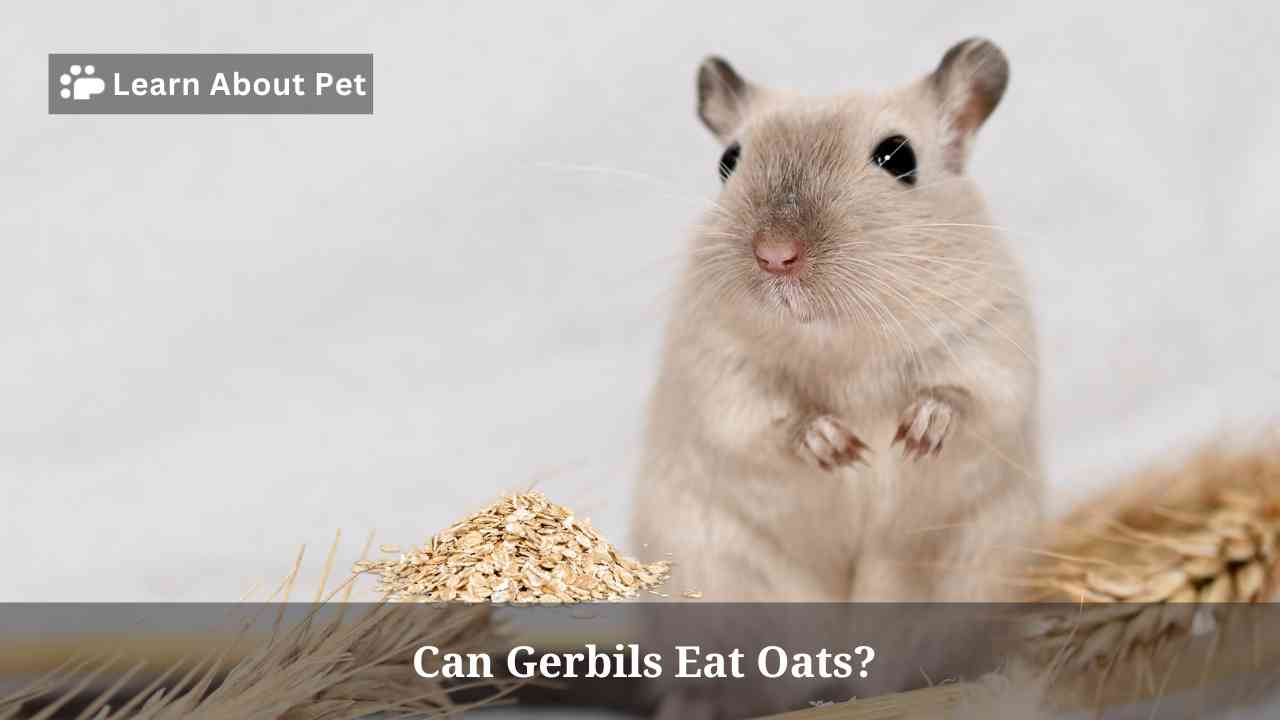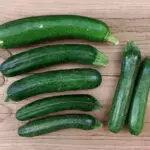Owners of pet gerbils often want to know whether giving the gerbils oats to eat is proper. In this article, we shall be answering that question comprehensively.
Can gerbils eat oats? Yes, gerbils can and should eat oats. Oats have a lot of nutritional benefits for gerbils. However, overfeeding on oats may lead to gerbils having diarrhea and several other problems. Therefore, as with any other gerbil food, oats should be fed moderately.
All in all, oats are a natural food for gerbils – and one that gerbils’ bodies can derive many benefits from.

Is Oats Safe For Gerbils?
Oats are safe for gerbils. Gerbils are routinely fed on oats all over the world, with no complications. This is one evidence that oats are safe for gerbils.
Thus going by reports from those who have experience feeding gerbils oats, the oats are safe for gerbils.
Further, when you subject oats to thorough chemical analysis, you find no compound that can harm gerbils in them. This is further evidence that oats are safe for gerbils.
There are those who may point to the phenomenon in which some gerbils that eat oats have diarrhea.
But that tends to be either when the gerbils are getting introduced to oats (hence the normal stomach upsets) or when gerbils are overfed on oats. It can also happen due to gerbils eating the wrong form of oats…
On the other hand, there are those who say that overfeeding gerbils on oats can lead to the gerbils having too much iron in their bodies. But once again, that would be on account of overfeeding.
Ultimately, oats are safe for gerbils, if the gerbils are fed on the oats in the right way.
Is Oats Beneficial For Gerbils?
Oats have several notable nutritional benefits that gerbils can tap from them.
The main thing in oats is carbohydrates, which animals like gerbils of course need. Thus the effect of a gerbil eating oats is likely to be that of the gerbil being highly energized.
There is also quite a bit of protein in oats, which is often overlooked. Therefore when gerbils eat oats, they gain some of the amino acids they need.
Further of course, there is fiber in oats. Thus when gerbils eat oats, they get dietary fiber: which they need for the optimal functioning of their guts.
Simply put, offering a gerbil oats translates into giving it many health benefits.
Can Gerbils Eat Oats In The Wild?
This question, on whether gerbils can eat oats in the wild, is key in understanding whether the oats are natural or unnatural to the gerbils.
So, indeed, do gerbils eat oats in the wild? The answer is ‘yes’. Plants like oats (and others in the oats family) do sometimes grow in the sorts of places that are natural habitats for wild gerbils.
And the gerbils do eat them.
Mark you, the oats in question here are, strictly speaking, simply grass seeds. And such grass seeds are mostly what keep wild gerbils going.
Therefore when a pet gerbil eats oats, it is feeding on something that, even in nature, it would be eating.
Do Gerbils Like Oats?
Most gerbils really like to be fed on oats. You can tell that the gerbils like oats in two ways.
Firstly, you notice that when gerbils are given oats to eat, they lap them up quite fast. This surely is evidence that the gerbils like oats.
Secondly, you notice that when you offer gerbils oats alongside other foods, they tend to go for the oats first. This is evidence that the gerbils have a preference (in other words a liking) for the oats.
Can Gerbils Eat Oats?
Yes, gerbils can eat oats. Gerbils seem to have the ability to sniff oats from afar, and instinctively move to where the oats are.
Not much preparation of oats is needed, so that gerbils can eat them. Remember, as said earlier, oats are precisely the kinds of foods that gerbils have over the years evolved to feed mostly on.
The oats are very safe for gerbils, as long as gerbils don’t eat far too much of them. And as observed earlier, there is a lot of nutritional benefit in gerbils eating oats.
All this leads us to the conclusion that eating oats is proper for gerbils. You can therefore give your gerbils oats with that assurance.
Can Baby Gerbils Eat Oats?
Newborn baby gerbils obviously can’t eat oats. Such newborn gerbils rely entirely on the milk they delicately suckle from their mothers.
Older baby gerbils – like those that are past the 8th week of their lives may, however, get to eat oats.
Note that oats are a relatively protein-rich food, which can considerably boost baby gerbils’ developmental progress.
Which Oats Can Gerbils Eat?
You can find oats in their natural raw form, in cooked form, in rolled form or in steel cut form. There are also porridge oats and oat byproducts like granola.
One may then enquire on which among these oat forms is appropriate when it comes to feeding gerbils.
Can Gerbils Eat Raw Oats?
Yes, gerbils may eat raw oats.
In fact, gerbils almost always seem to prefer eating their oats raw.
Such raw oats are, in many ways, reminiscent of the grass seeds gerbils would be eating if they were in their wild natural habitats.
Can Gerbils Eat Cooked Oats?
Cooked oats are really not the best for gerbils.
The problem with cooked oats is in that the gerbils that eat them may tend to have some diarrhea.
This is due to the water that the oats retain during the cooking process.
Can Gerbils Eat Rolled Oats?
Rolled oats may be edible by gerbils, but they are not always ideal.
The processing that rolled oats undergo makes them more likely to cause a bit of diarrhea in gerbils.
Can Gerbils Eat Steel Cut Oats?
Much of what we said with regard to rolled oats applies to steel cut oats. Yes, they are edible by gerbils. However, the processing they undergo increases the chances of gerbils that eat them ending up with diarrhea.
That is why it may be better not to offer gerbils steel cut oats.
Can Gerbils Eat Porridge Oats?
Porridge oats are not really good for gerbils.
Gerbils that feed on porridge oats tend to end up with loose stools bordering on diarrhea.
Thus such porridge oats are not really ideal for gerbils.
Can Gerbils Eat Oatmeal?
Oatmeal is not recommended for gerbils to eat. The oats in oatmeal are not in their natural form, but processed.
It has been observed that due to the moisture in oatmeal, gerbils that eat the oatmeal tend to start experiencing some diarrhea.
Thus one is better off not feeding gerbils on oatmeal.
Can Gerbils Eat Granola?
While oats are the main component in granola, the granola does have other ingredients that aren’t exactly good for gerbils.
Thus granola is really not something to feed gerbils, especially on a regular basis.
How Often Can Gerbils Have Oats?
Gerbils may eat oats one time per week or thereabouts.
Although oats are good for gerbils, if gerbils eat oats too often, they may develop diarrhea-like symptoms.
How Much Oats Can Gerbils Eat?
For most gerbils, eating about half a tablespoonful for oats (in a day) tends to be sufficient.
One may also offer the oats alongside other food, with the oats serving as supplementary food. In this case, the oats can be about 10% of the whole meal.
Final Verdict
Gerbils can eat oats. The oats are actually among the most natural and beneficial foods for gerbils.
For gerbils, the best oats are those in wholegrain form. Eating most other processed oats may leave the gerbils with diarrhea-like symptoms.
From oats, gerbils can get lots of carbohydrates, fiber, minerals and even some protein.
Nonetheless gerbils shouldn’t eat too much oats. The fiber in oats may make gerbils to have very loose stools or outright diarrhea. That is if the gerbils eat oats excessively.

Welcome to Learn About Pet. My name is Rajkumar Ravichandran and I love all pets, travel, and amazing food. I write about my passion and personal experience caring for multiple pets in this blog! ❤️
Post Disclaimer
DISCLAIMER: THIS BLOG OR WEBSITE, "Learn About Pet", DOES NOT PROVIDE YOU WITH MEDICAL ADVICE AND IS NOT A SUBSTITUTE FOR MEDICAL ADVICE. ALWAYS GET IN TOUCH WITH YOUR PERSONAL VETERINARIAN AND USE INFORMATION HERE AS GENERAL ADVICE.
The information, including but not limited to, text, graphics, images and other material contained on this website are for informational purposes only. No material on this site is intended to be a substitute for professional veterinary advice, food recommendation, diagnosis, or treatment. Always seek the advice of your veterinarian or other qualified health care provider with any questions you may have regarding a medical condition or for pet food related questions.







